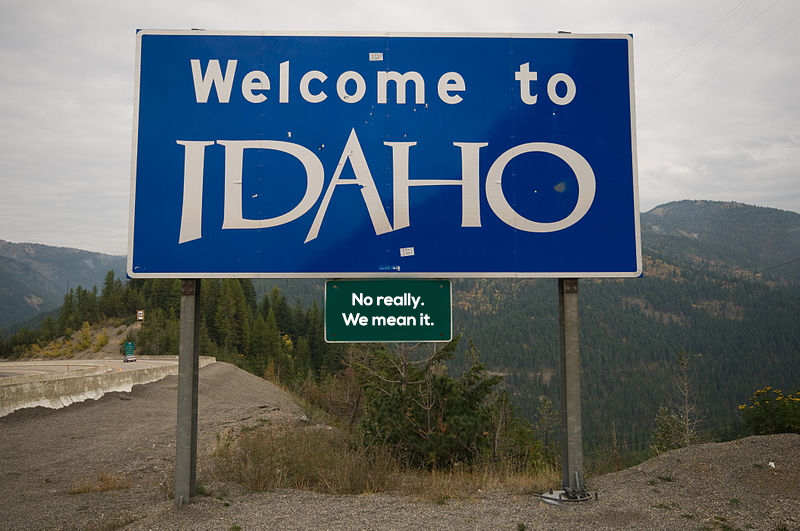By Steven Reames, Executive Director, Ada County Medical Society
For those who have experienced true “Southern Hospitality,” coming to the Intermountain West must seem like a rude awakening. The classic Idaho touristy postcard says it all: a couple of rednecks sitting on the car next to a highway border sign menacingly brandishing their guns: “Welcome to Idaho. Now Go Home!” These kind of attitudes towards outsiders are not anything new in our nation and have been happening since at least the mid-19th century. A generation of settlers comes into a territory, finds a place worth establishing themselves in, and then rejects the next generation of newcomers. Same ole same ole.

The problem with this attitude – which does find its way into the medical community – is that if we ever have any hope of getting off the bottom of the list of physicians per capita, we are going to have to adopt new perspectives. Reports of 12-25% of U.S. healthcare workers leaving their jobs in the last year should have every Idahoan quaking in their cowboy boots. I frequently get calls from the public begging me for the names of a geriatrician, rheumatologist, psychiatrist, and sometimes even a family medicine physician who takes Medicare, to get established with and not have to wait 3-6 months.
Last month at the annual member meeting, our outgoing President of the Board, Dr. Tom Pintar, called this attitude out.
“I have recently started focusing more on ‘welcoming’ neighbors as well as patients, even those from California! I find it interesting that when I meet someone who tells me they just moved here, and when my first comment is ‘welcome,’ they do not feel that way in some circles. I think it is important to reach across the aisle as it were and have humility and grace as we meet new people and learn their stories.”
In addition to this general lack of warmth towards outsiders, Idaho is also challenged with both real and perceived attitudes about those from different ethnicities and races. Healthcare is not exempt from this. I have spoken with one minority physician who arrived in Boise in 2019 and promptly left in 2021. Never in her life or career, she said, had she been treated with such disrespect, not just by patients, but by fellow physicians whose behaviors were not corrected by the administration.
Moreover, the way physicians have been treated with such disrespect by patients and the public during the pandemic is taking its toll on the workforce here, not just with retention but also recruitment. Last month, an Idaho residency program reported some of their new candidates have withdrawn their applications for consideration after watching our local public health policies play out in national news.
Mastering JEDI skills (Justice, Equity, Diversity, and Inclusion) is something that has to happen at both a cultural level and in our workplaces if we want to attract next-generation physicians and retain some of those it already has. Healing the rift between the “working class” and “snobby elites” as they pertain to private and public health concerns is also going to be a massive challenge. I do not pretend to know where to begin on these issues.
Returning to the issues of hospitality, however, provides me with greater hope. If we are honest, at the root of our lack of warmth towards newcomers is a cold heart and a poverty mindset. When we have discovered and possessed something we want, we guard it with our lives to be sure nobody will take it away. The assumption is that there is only so much of it to go around and to some degree that may be true when it comes to housing and roadways right now. But when it comes to being gracious, the only limitations we have with this intangible is really ourselves.
We can start on the workforce challenges facing us in the years ahead by at least practicing a more welcoming attitude and physicians leading this way is a model for those who still do look to them as leaders. I provide a training to our board members every so often since I expect them to play host with me at ACMS events. I think the principles can be broadly adapted for your context and offer them to you for consideration.
- Eliminate awkwardness
- Demonstrate a genuine interest in who guests are
- Talk about the values you think are dearest in our medical community
- Connect them to other people or resources
- Thank them for coming and invite them back
Remember, people will forget what you said and did, but they will never forget how you made them feel. I encourage you to make all feel welcome, connected, and appreciated, especially if they come from a sunny southern unnamed Western Coast state.


